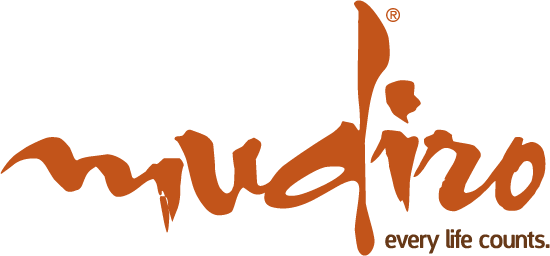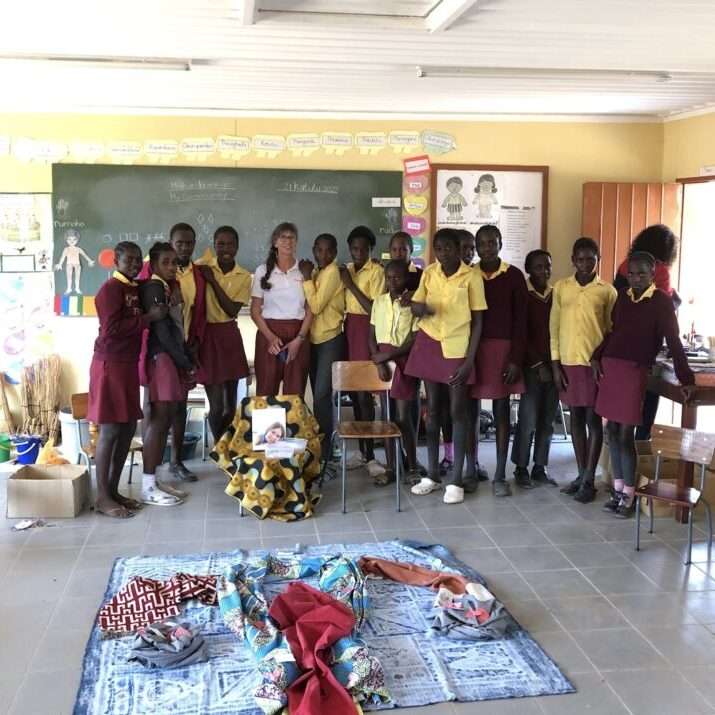Field report assignment from July 1 to August 10, 2022
Arrival
Finally, my big wish came true, I landed in Africa, in Namibia! Although I had always traveled a lot with my family and had already done a three-year mission in Papua New Guinea, I had never been to Africa before.
In Rundu Herman picked me up, so I could enjoy the two-hour drive to Andara in the car and let the landscape work on me and already got many inputs about the country and people from him. Herman is the project coordinator of Mudiro and steered the car skillfully and with experience next to herds of cows, goats, stray dogs and people who were on the road.
Since my suitcase got stuck in Frankfurt, Herman took care of it, making phone calls to the airport and minibus drivers all weekend! After five days, the suitcase was delivered directly to Mudiro’s living containers in Andara!
Hospital work
On Monday I started my work in the building department of Andara Hospital. Since I didn’t really have a work assignment there, I was able to take in the flow of the department for the first time and see what worked and how it worked or didn’t work. As I had also expected, many things were different and simpler than what I was used to in Switzerland. The fact is that women in Namibia give birth in the same way as everywhere else. But many things made my midwife heart bleed: The women giving birth were cared for in a very empathy-less way, the midwives only supported the women in the last phase of the birth, when the baby was born. Most of the time the woman was alone, no encouragement, massage or kind words. The baby was shown to the mother, then taken away, weighed and measured, given medication, and dressed, the mother was not given the baby back in her arms until she was taken to the maternity room. The women were also very intimidated and showed no joy when they saw the baby… I wondered if they really had no joy since it was already the umpteenth child and so laborious to give birth. But I realized with time when I massaged their backs during the birth and praised them that they had done very well and they had a beautiful child, their eyes also shone.
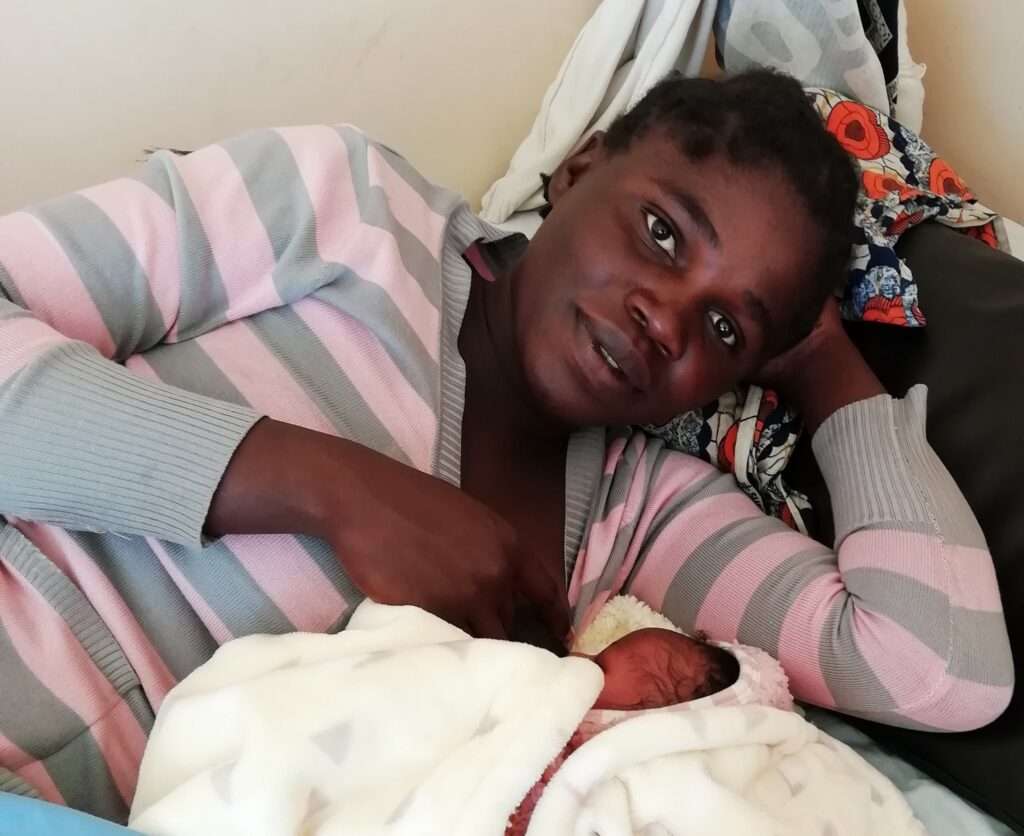
In the building department, there was a certificate: Baby friendly Clinic! I had to ask myself every day why: no bonding, no quick attachment to the breast and no radiant warmer worked….
Unfortunately, many apparatuses did not work because they were maintained incorrectly or not at all. All this sounds very sobering and shows that Mudiro can still achieve a lot in Namibia.
I was able to support and affect some things directly. One child had a cleft lip and palate. With improvisation, a syringe and a cut infusion tube, the baby could be fed with finger feeding. In this way, a closure of the cleft could be created during swallowing and the milk also arrived in the stomach. Soon the Doctor Vischer arrived, they brought a special bottle from Switzerland, with which the mother could easily feed the baby at home. In order for this child to have its first operation in the hospital in Rundu, it had to weigh 5 kilos. I hope very much that it will survive!
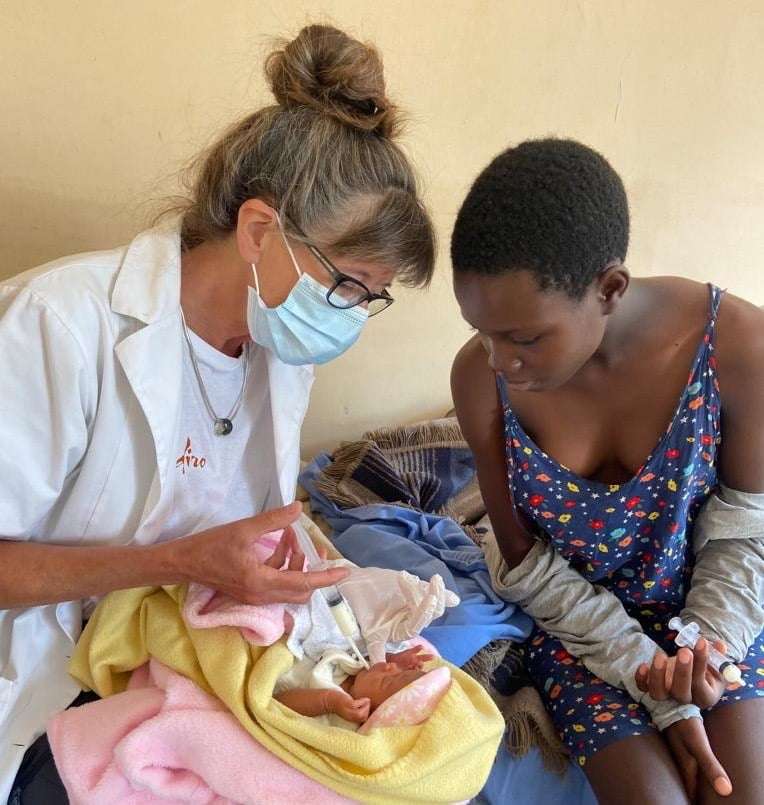
I also took care of premature babies or mothers with special diseases.
Course work
In the 3 days Academy, I was able to train 18 nurses and midwives in an acute taping for pregnant women and women in childbirth. This is a simple and effective way to fix the loosening pain of the pelvic girdle, sacrum or abdominal muscles. This would also reduce the need for painkillers. For this training, the tapes were donated by MCL laboratories and Dolor-X company. On behalf of Mudiro, many thanks. In Namibia, such tapes can also be purchased if sufficient funds are available. They can certainly be ordered through the hospital pharmacies.
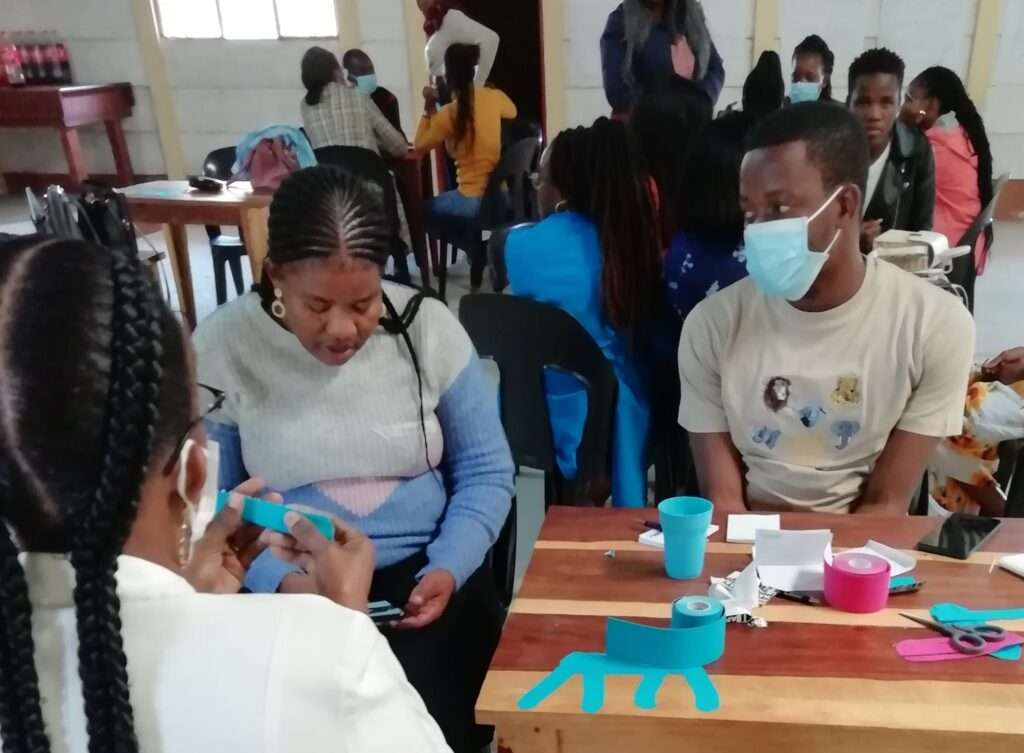
It was practiced diligently and they were active and super days. The various participants traveled from far away, sometimes up to 700km away were their hospitals. They were all recruited and sent by the Ministry of Health. The whole organization, accommodation and catering were also covered by Mudiro. Proudly they all carried their certificates home.
Furthermore, I was able to give sex education to girls or young women at schools or smaller health centers. Many women had their first child very early, at the age of 14 or 15! Thus they must break off the school, can learn so also no occupation and also usually the fathers of the children are already disappeared. Thus poverty is very high in the Kavango region. The women carry a large burden to bring through somehow the family. It would be very important for women’s health and their families that good family planning could be implemented.
In the lessons, I used elements of the MFM project (mfm-projekt.ch), which I have also used to teach girls in Switzerland. The main goal is to help young girls understand their bodies around menarche so that they can live out their womanhood with self-confidence and pride.
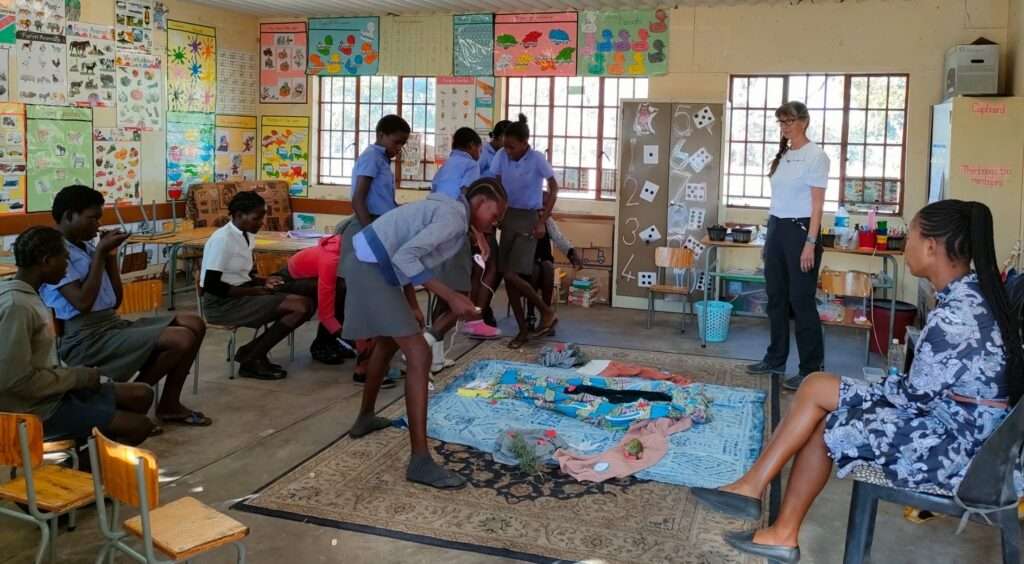
I laid out the uterus, fallopian tubes and ovaries on the floor with large cloths, so that everything was very clearly visible that is otherwise small and invisible in the female body. The hormones were symbols, the girls were involved in a game, so all senses were stimulated.
I was fascinated by how the girls participated, at first shyly, then more and more openly, as I experienced exactly the same in Switzerland.
Of course, the different contraceptive methods were also discussed and where they can get them. There were also a lot of prejudices…
Even sanitary pads during menstruation can be a problem. Either a store is too far away, or there is a lack of money. So the girls often have to stay at home during their period and they are absent from school. I also realized then that the boys also need to receive sex education! This task should be given by men and thus also show that both sexes are responsible for a functioning family.
Highlight
Highlights were the days in outreach! With Barbara and Herman we drove on sand roads up to 2 hours to different villages, together with the ENT doctor couple Vischer and the emergency doctor Karolina Büchel.
We examined children, adults and pregnant women in a classroom, with very improvised means. Our arrival was already preceded and people waited patiently in queues, in front of the school. Despite few possibilities, we tried to do justice to the patients or organized transports to Andara to the hospital.
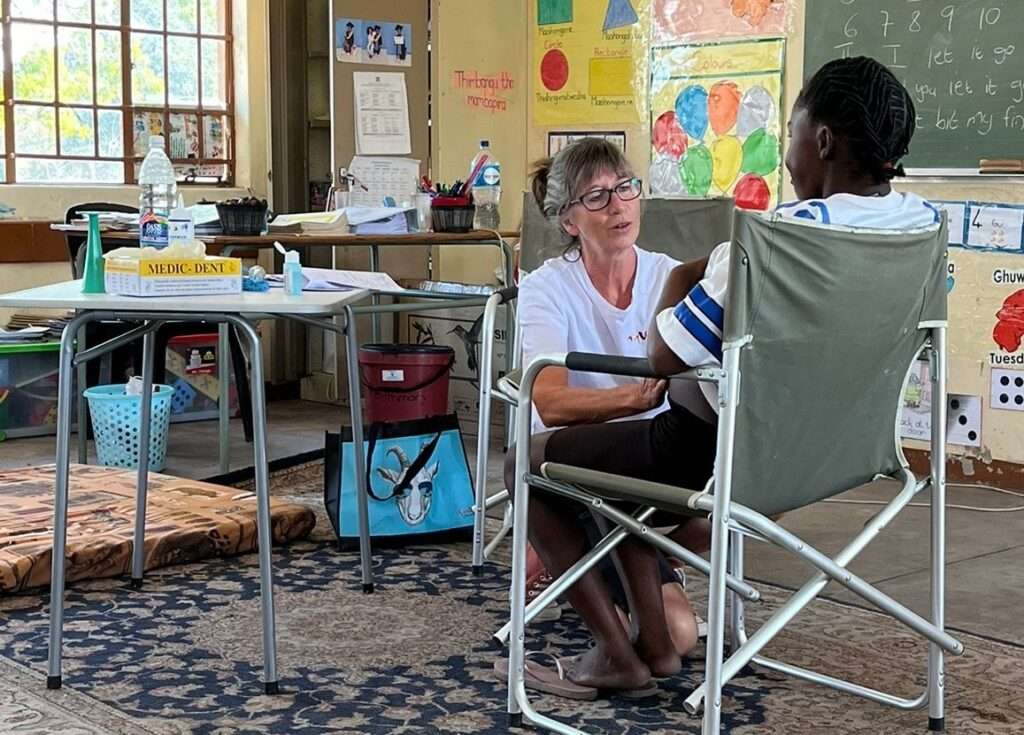
We slept in tents near the village, surrounded by herds of cattle, goats, dogs and chickens. Barbara and Herman cooked us delicious from the fire (real Mudiro everywhere). The atmosphere out there with sunsets and the landscape was overwhelming. I would have loved to stay out there, so I would have experienced much more of the village culture.
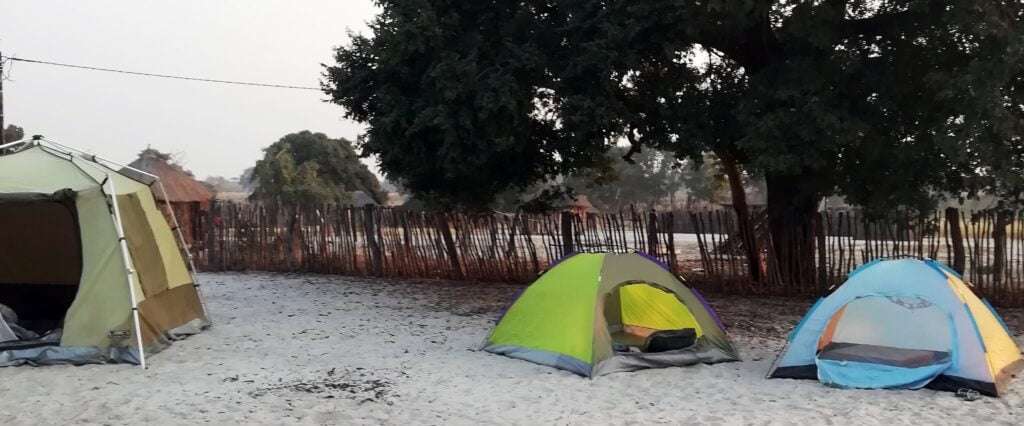
The six weeks flew by quickly for me and I was able to take away many impressions: A country of many contrasts: Poor/rich, urban/rural, modern/underserved, very cold at night and in the morning/ piercingly hot during the day….
The support of Mudiro is important to help the poorest of the poor.
I was able to round out the mission with a three-week trip in a tent throughout Namibia, together with my husband.
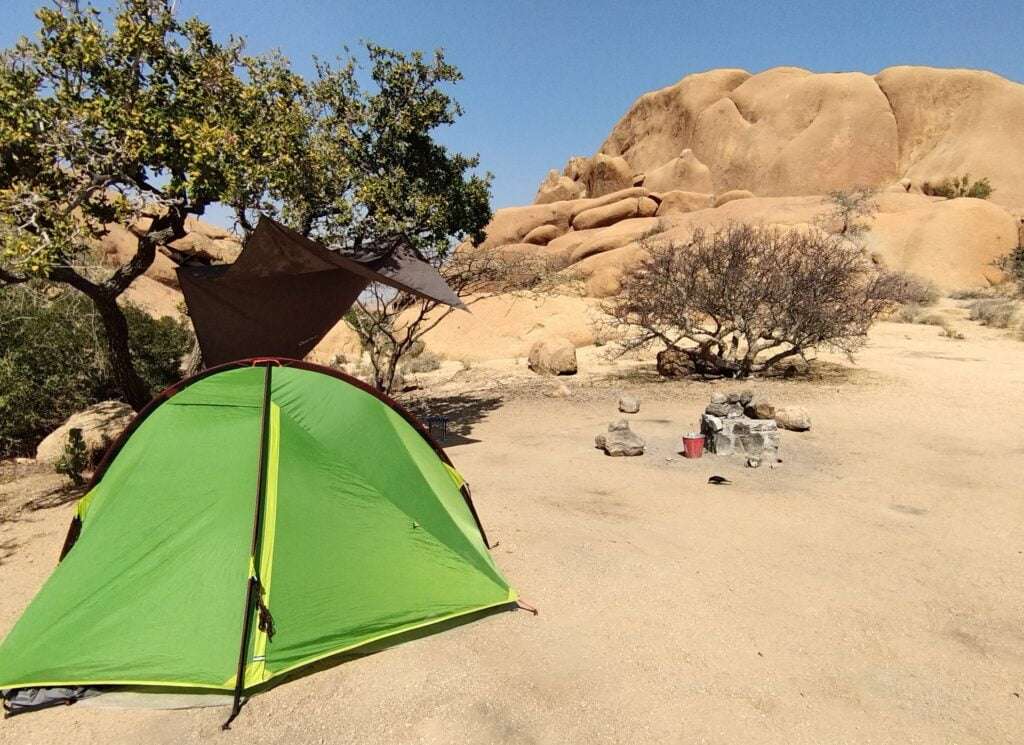
Namibia is fantastic
~ Marlis Koch
